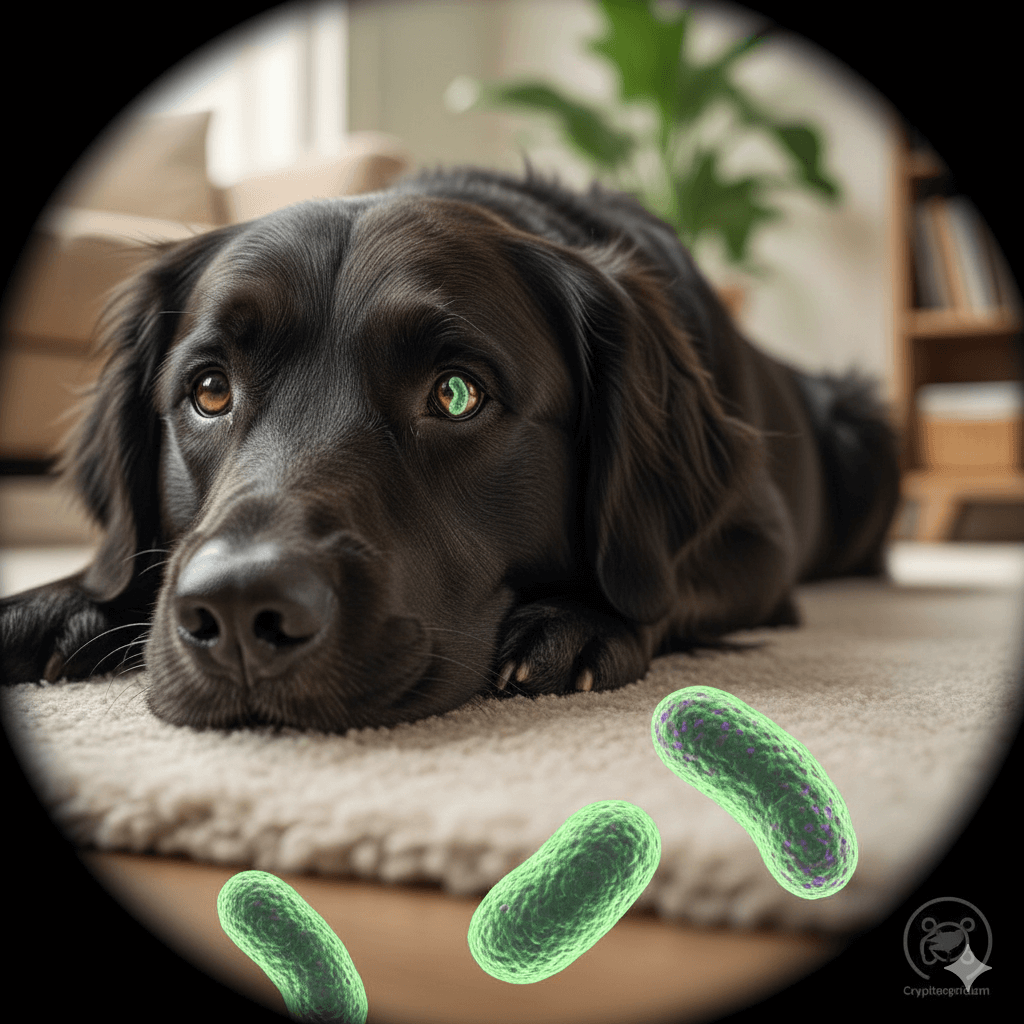Understanding Dog Meningitis: Symptoms, Causes, and Treatment Options
Meningitis in dogs is a serious condition that requires prompt attention and care. While it’s not as common as other canine health issues, meningitis can have severe consequences if left untreated. This inflammatory disease affects the protective membranes surrounding the brain and spinal cord, leading to a range of symptoms that can vary in severity. As a responsible pet owner, it’s crucial to recognize the signs of meningitis early and understand the steps needed to ensure your dog receives proper treatment.
In this blog post, we’ll explore what dog meningitis is, its potential causes, how it’s diagnosed, and what you can do to support your furry friend through recovery. By the end, you’ll be better equipped to protect your dog’s health and well-being.
Common Symptoms of Dog Meningitis
Recognizing the symptoms of meningitis is the first step toward getting your dog the help they need. Because the disease affects the central nervous system, the signs can be alarming. Here are some common symptoms to watch for:
Fever:
A high body temperature is often one of the earliest indicators of inflammation in the body.Neck Stiffness:
Dogs with meningitis may exhibit difficulty moving their neck or appear to hold it rigidly.Sensitivity to Touch:
Your dog might flinch, cry out, or show discomfort when touched, especially around the head or spine.Lethargy:
A noticeable lack of energy or enthusiasm can signal that something is wrong.Seizures or Muscle Spasms:
In severe cases, meningitis can cause uncontrollable muscle movements or seizures.
If you notice any combination of these symptoms, it’s essential to seek veterinary care immediately to rule out or confirm meningitis.
Potential Causes of Meningitis in Dogs
While the exact cause of meningitis isn’t always clear, several factors can contribute to its development. Understanding these potential triggers can help you take preventive measures to protect your dog.
Bacterial Infections:
Bacteria entering the bloodstream can spread to the brain and spinal cord, causing infectious meningitis.Viral Infections:
Certain viruses, such as distemper, can lead to inflammation of the meninges.Immune System Disorders:
Autoimmune conditions may cause the body to mistakenly attack its own tissues, including the meninges.Trauma or Injury:
Head injuries or spinal trauma can sometimes result in inflammation of the protective membranes.Parasites:
Parasitic infections, such as those caused by ticks, can also contribute to meningitis in rare cases.
Identifying the underlying cause is critical for determining the most effective treatment plan for your dog.
Check this guide 👉Understanding Cleft Palate in Dogs: Best 7 Health Tips!
Check this guide 👉Understanding Peritonitis in Dogs: Best 7 Expert Tips!
Check this guide 👉Understanding Septic Abdomen in Dogs: Best 7 Expert Tips!

Type of Meningitis | Key Characteristics |
|---|---|
Sterile or Non-Infectious | Caused by immune-mediated reactions; no infection present |
Bacterial Meningitis | Triggered by bacterial infections; often severe |
Viral Meningitis | Linked to viral diseases like distemper |
Fungal Meningitis | Rare; caused by fungal infections in the brain |
Parasitic Meningitis | Associated with parasites like ticks or worms |
Diagnosing Meningitis in Dogs
Diagnosing meningitis can be challenging because its symptoms overlap with other neurological conditions. However, veterinarians use specific methods to identify the disease accurately.
Physical Examination:
The vet will assess your dog’s overall condition, checking for signs like neck stiffness or sensitivity to touch.Blood Tests:
Bloodwork helps rule out other illnesses and identifies abnormalities that may point to meningitis.Spinal Tap (CSF Analysis):
Collecting cerebrospinal fluid through a spinal tap allows the vet to analyze inflammation levels and detect infections.Imaging Tests:
X-rays, MRIs, or CT scans can reveal structural issues in the brain or spinal cord that may be contributing to the problem.Response to Treatment:
In some cases, vets may start treatment based on symptoms and monitor the dog’s response to confirm the diagnosis.
Early and accurate diagnosis is vital for ensuring your dog receives the appropriate care and treatment.
Treatment Options for Dog Meningitis
The treatment for meningitis depends on the type and severity of the condition. While some cases are manageable with medication, others may require more intensive care.
Antibiotics:
For bacterial meningitis, antibiotics are prescribed to eliminate the infection.Anti-Inflammatory Medications:
Steroids or non-steroidal anti-inflammatory drugs (NSAIDs) reduce swelling and pain.Pain Management:
Pain relievers may be used to keep your dog comfortable during recovery.Supportive Care:
Intravenous fluids and hospitalization may be necessary for severe cases to stabilize your dog.Monitoring and Follow-Up:
Regular check-ups ensure the treatment is working and allow adjustments if needed.
With prompt and consistent treatment, many dogs recover fully from meningitis and regain their quality of life.
Preventive Measures to Reduce the Risk of Meningitis
While meningitis can’t always be prevented, there are steps you can take to minimize your dog’s risk of developing this condition. Proactive care and awareness go a long way in protecting your furry friend.
Keep Vaccinations Up-to-Date:
Ensure your dog receives core vaccines like distemper, which can help prevent viral causes of meningitis.Practice Good Parasite Control:
Use flea, tick, and heartworm preventatives to reduce the risk of parasitic infections that may lead to meningitis.Maintain a Clean Environment:
Regularly clean your dog’s living space to minimize exposure to bacteria and other pathogens.Monitor for Injuries:
Keep an eye on your dog during play or outdoor activities to prevent head or spinal trauma.Feed a Balanced Diet:
A nutritious diet supports a strong immune system, helping your dog fight off potential infections.
By incorporating these preventive measures into your routine, you can significantly lower your dog’s chances of developing meningitis.
Signs That Your Dog Is Recovering Well
If your dog has been diagnosed with meningitis and is undergoing treatment, it’s important to monitor their progress closely. Here are signs that indicate your dog is on the path to recovery:
Improved Appetite:
A return to normal eating habits shows that your dog is feeling better and regaining strength.Increased Energy Levels:
If your dog starts playing or engaging in activities again, it’s a positive sign of recovery.Reduced Pain or Discomfort:
Less sensitivity to touch or fewer signs of pain suggest inflammation is subsiding.Stable Body Temperature:
A consistent, normal body temperature indicates that the infection or inflammation is under control.Better Mobility:
Improved movement, especially in the neck and spine, signals that neurological symptoms are improving.
These signs of recovery are encouraging, but always consult your vet if you notice anything unusual or concerning.
Ways to Support Your Dog During Recovery
Recovery from meningitis can be a challenging time for both you and your dog. Providing extra care and support can make the process smoother and more comfortable for your pet.
Create a Calm Environment:
Minimize stress by keeping your dog in a quiet, low-stress area during recovery.Offer Gentle Exercise:
Short, controlled walks or light play can help maintain muscle tone without overexertion.Administer Medications as Directed:
Stick to the prescribed treatment plan and ensure medications are given on time.Provide Comfortable Resting Spaces:
Soft bedding and cozy spots can help your dog rest comfortably while they heal.Monitor for Relapses:
Keep an eye out for recurring symptoms and report any changes to your veterinarian immediately.
By supporting your dog through their recovery journey, you’ll help them regain their health and happiness more quickly.
Frequently Asked Questions About Dog Meningitis
Can meningitis in dogs be cured?
Many cases of meningitis can be managed or cured with proper treatment, but outcomes depend on the cause and severity.
Is meningitis contagious between dogs?
Infectious meningitis caused by bacteria or viruses can potentially spread to other dogs, so isolation may be necessary.
How long does treatment take?
Treatment duration varies but typically lasts several weeks to months, depending on the case.
Can vaccines prevent meningitis?
Vaccines like the distemper vaccine can reduce the risk of certain types of meningitis.
What should I do if I suspect my dog has meningitis?
Contact your veterinarian immediately for an evaluation and avoid delaying treatment.
Final Thoughts: Protecting Your Dog’s Health Against Meningitis
Dog meningitis is a complex and potentially life-threatening condition, but understanding its causes, symptoms, and treatment options empowers you to act quickly if your dog shows signs of illness. Early intervention is key to improving outcomes and ensuring your furry companion makes a full recovery. By staying informed and working closely with your veterinarian, you can provide the best possible care for your dog. Remember, prevention plays a significant role—regular vet check-ups, vaccinations, and parasite control can all help reduce the risk of meningitis. With love, vigilance, and proper medical care, you can safeguard your dog’s health and enjoy many happy years together.
Understanding Cryptosporidium in Cats: Best 7 Expert Tips! – Spot symptoms, treat safely, and stop parasite spread in your home.
Understanding Cryptosporidium in Dogs: Best 7 Expert Tips! – Learn symptoms, treatment & prevention for this stubborn gut parasite.
Understanding Syringomyelia in Cats: Best 7 Expert Tips! – Recognize signs, manage pain, and support your cat’s neurological health with vet-backed guidance.
Understanding Syringomyelia in Dogs: Best 7 Expert Tips! – Expert insights on symptoms, MRI diagnosis, pain management & quality of life.





